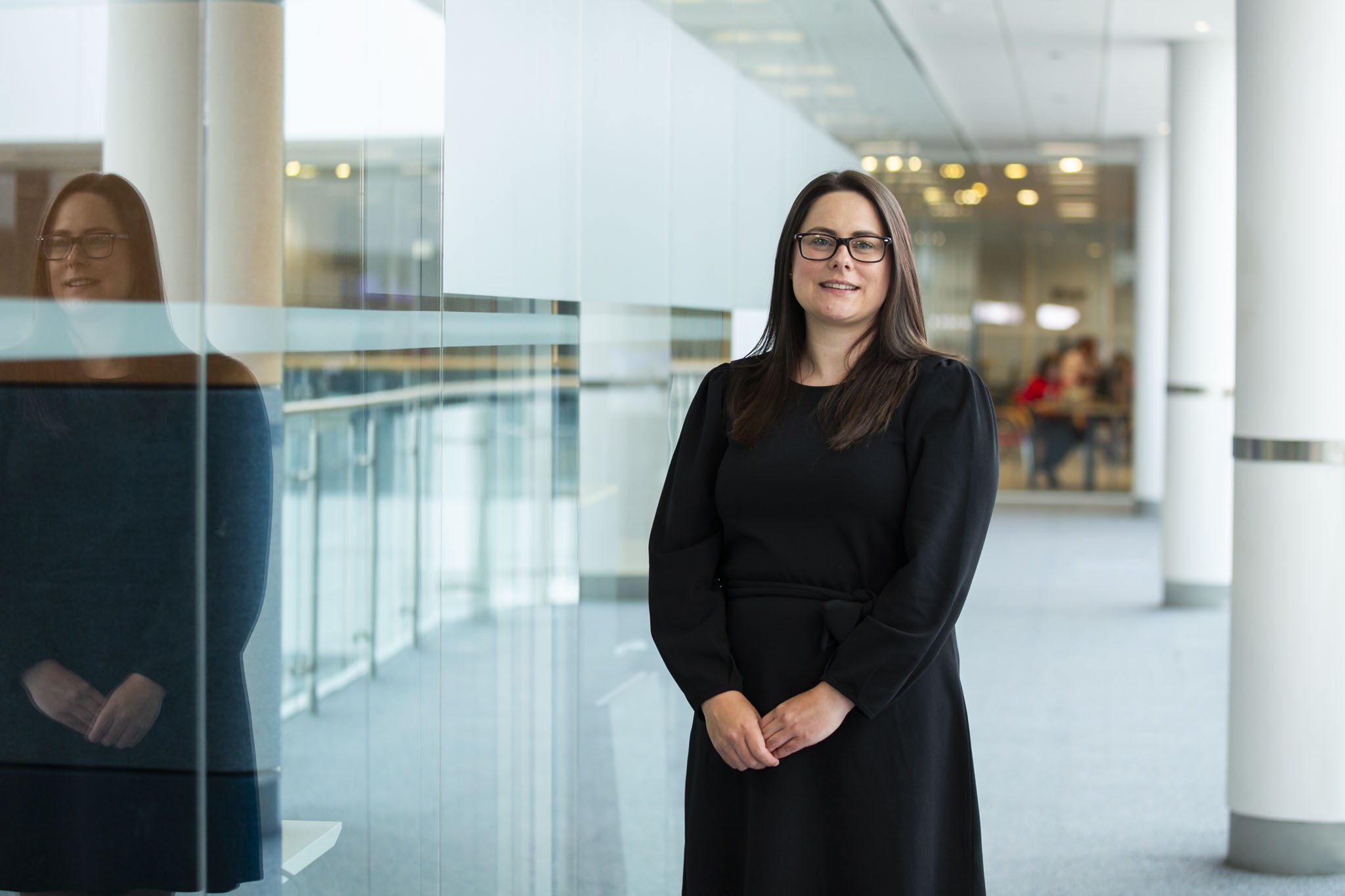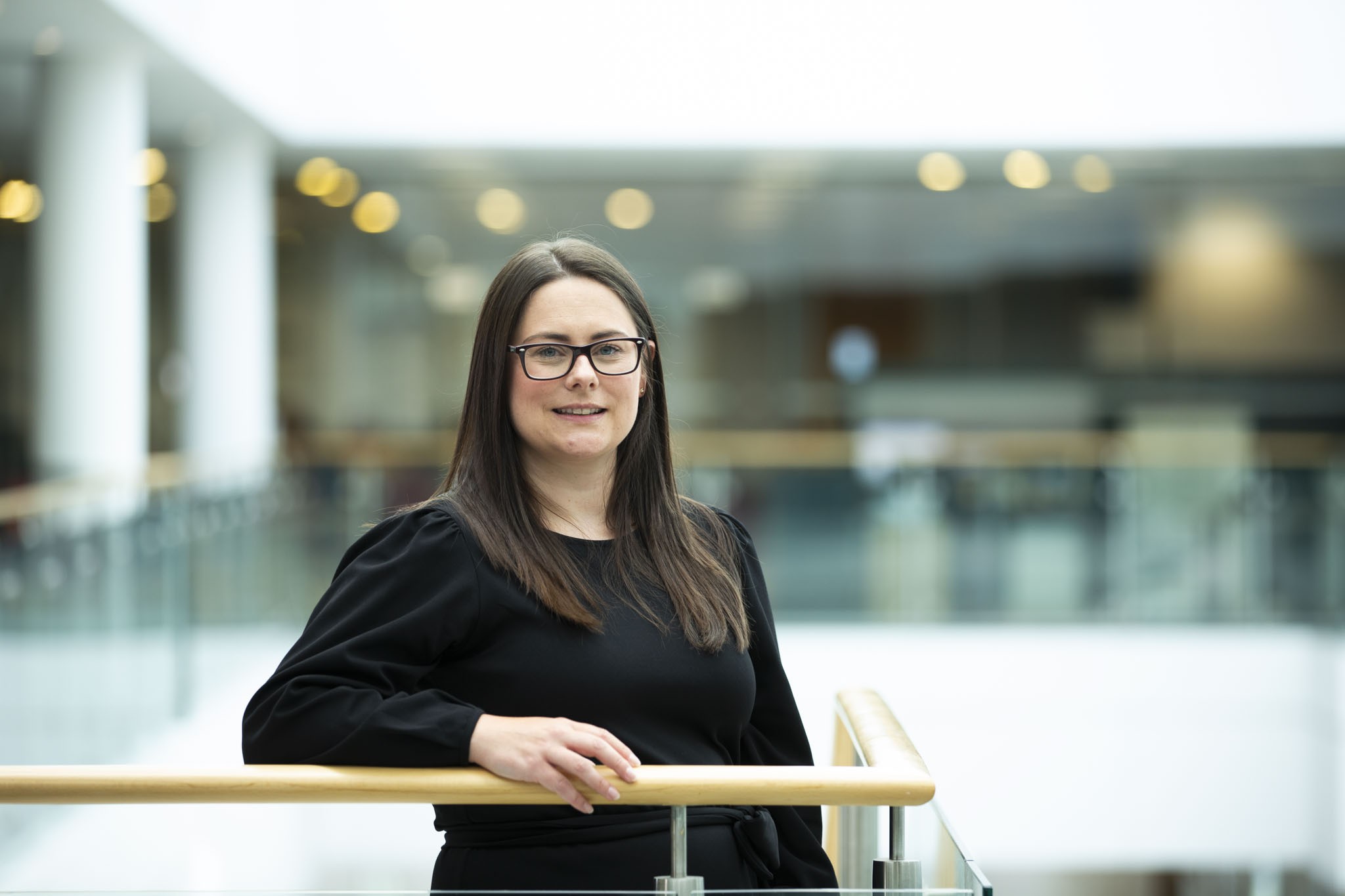Tell me about your role and how you got into it.
I am the Typhoon UK and GCAP Programme Manager for Leonardo where I am responsible for the leadership of the Joint Avionics Service (JAS) in partnership with BAE Systems and future GCAP through-life support.
The Joint Avionics Service delivers avionics support under the TyTAN availability contract. I've been doing this role for three years but have been with Leonardo for around 20 years working in through-life support roles in our helicopters business.
Tell us about your early career.
I started my career as a Business Apprentice at our UK Helicopter site in Yeovil which was great because it allowed me to explore different areas and discover the things I really enjoyed about the business.
Following my apprenticeship, I got a job in customer support. I’ll be honest, I love working with our customers. I have worked with many military customers, the UK MoD, the Portuguese Air Force, the French Navy, the Danish Air Force, and even the Canadian Search and Rescue Team.
Have you always worked in defence?
No. After about eight years I left the company and worked as a supply chain analyst and a business-winning consultant. However, after a couple of years I knew that I wanted to be back in defence.
I returned to helicopters delivering avionics support to Sea King, Lynx and Merlin based in Yeovil. I was part of a collaborative team that had industry and military personnel all working together as one team. We were working towards a common goal. Looking back, it was one of the most challenging areas of my career, but also where I developed the most.
In March 2020, I moved to Scotland and I landed a Programme Manager role for Tornado and Gripen radars here at our Edinburgh site. After a short period, I was offered the Typhoon UK leadership role.
Looking back through my career, I wonder whether it was all by accident or design. I don't think I'm ever that sure but, hopefully, it's credit to my skills and experience that I've managed to get to where I am.

Who has inspired you along the way?
I've been really lucky that I've had a lot of formal and informal mentors throughout my career. As a female in this industry, having good mentors has been fundamental to being able to get to where I am.
One key thing I was told was to have confidence in my ideas and decisions and to communicate in a way that makes people listen. Another was to remember my core values and not to chase promotion at all costs but only if it aligns with my values.
I am now a mentor to four women within the organisation and I just hope that I can share a little bit of what I've learned with them.
What was the attraction of the Typhoon role?
My role means that ultimately, I play a small part in putting the jets in the air. These jets help keep us safe and support our military and I find a huge amount of value and purpose in doing that.
Working as part of the broader Eurofighter consortium, I work with some amazing people across different organisations. I could not carry out this role without the technicians, engineers and operational teams that are delivering. I need to make sure that they've got the right things in place to deliver what they need to do their job effectively. That's what gives me a sense of pride in what I do.
What skills do you need to do this job?
As a programme manager, you need to be good at coordination and time management. The programme has a lot of moving parts and there are many stakeholders, who each have their own requirements. Being able to coordinate all this takes years to master.
Seeing the aircraft fly and knowing I've played a little part in putting them in the air is special.
What does it feel like to be part of the wider Eurofighter family?
Seeing the aircraft fly and knowing I've played a little part in putting them in the air is special.
The work does feel a bit like a family. We work collaboratively and face challenges together, so it feels like one team working towards the same goal.
What are the key personal attributes that you think and needed to get to where you've got to?
Even though it is 20 years since I started my career, there are still times when I walk into a meeting and I'm the only female in the room. In that situation, you need confidence in what you're saying, and resilience as well if something doesn't quite go as you expected. Finally, I’d say being able to laugh is important too. What we do can be quite challenging so not taking yourself too seriously is important.
Is there any such thing as a typical day?
No, not really. One day I might be working with our operational teams, trying to tactically deliver against an urgent demand, on another I could be in a workshop collaboratively strategising with our senior leadership team on how we need to evolve in the changing landscape of defence. My favourite days are when I'm with our customers or partners.
How do you switch off?
I am a Wellbeing Champion within Leonardo and believe wellbeing is important in all aspects of what we do. I try to ensure that I'm a role model for my team in terms of getting that work-life balance for me. Spending time with my husband, 7-year-old son and friends is important to me. I love going to music gigs and also getting out into the fresh air walking with my two dogs.

